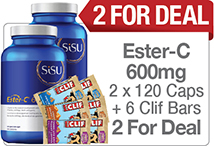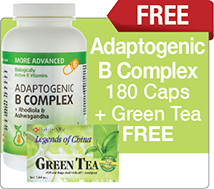Dermatitis
Updated Aug. 15th, 2019
Dermatitis literally means “inflammation of the skin”. It is a general term used to describe any skin that may scale, flake, thicken, weep, crust and itch or hurt. The skin will also often change colour and become reddened or less pigmented than the surrounding skin. Eczema is a term commonly used interchangeably with dermatitis, although technically eczema is one subtype of dermatitis caused by allergy (atopic dermatitis).
There are many different forms and causes of dermatitis. Because of this, the treatment for dermatitis can also vary.
TYPES OF DERMATITIS
Atopic Dermatitis (eczema) is caused by an immune hypersensitivity reaction in the skin. This type of dermatitis is most commonly caused by an internal reaction to a chemical or food that has been inhaled or ingested. Eczema is often associated with other allergic conditions in the body like asthma, and seasonal allergies. This type of dermatitis is often aggravated by stress, and temperature changes. The rash results in breaks in the skin that can create easy openings for infection. Staphylococcus is a common secondary infection of eczema. For more information, please see our Impetigo article. Treatment for atopic dermatitis is removal of the allergic substances from the diet or environment. When this is not possible, there are supplements that can help to reduce the excessive immune response to help clear the physical symptoms. For more information, please see our Immune System article.
Contact Dermatitis is an inflammation of the skin that results from direct skin contact with a particular substance, much like the name implies. This contact can cause an irritation, or an allergic reaction. Common causes of irritation are detergents, fabric softeners, soaps, and other chemicals. Irritation dermatitis most commonly appears as a burn on the skin. Allergic reactions can occur with any substance, depending on your body’s unique sensitivity. Some causes of allergic contact dermatitis are far more universal, such as: poison ivy, poison oak, and some fragrances.
Seborrheic dermatitis is dermatitis affecting the scalp or face, and is actually an irritation commonly caused by a fungal infection. For more information, please see our Hair Disorders article.
Conventional Treatment
Most cases of dermatitis are conventionally treated with the use of corticosteroid cream or oral corticosteroids. This treatment suppresses the immune response, and thus can improve the symptoms of dermatitis, but does not treat the underlying cause and will not prevent its reoccurrence. Side effects of this medication include skin-thinning, immune suppression and decreased bone density with prolonged use.
Lifestyle Changes
To fight dermatitis topically avoid chlorinated tap water for drinking and bathing. Use gloves while handling any substance that irritates the skin.
Avoid perfumes and colourings in laundry and personal hygiene products. Use glycerin and natural soaps to wash your body, face and hair. For dermatitis in the scalp make a concentrated tea with rosemary, nettle, witch hazel and tea tree oil. Apply it to the scalp after shampooing and leave on for 10-15minutes. You can also take oatmeal baths to relieve itching.
Dietary Changes
By including detoxifying foods in your diet, like high-fiber foods, and drinking lots of water, you can take an important step in preventing dermatitis. Some foods that people tend to be sensitive to include: dairy products, alcohol, fried foods, products with high sugar content, caffeine, raw eggs, strawberries, peanuts, chocolate and soy. If making small dietary changes does not help, then consider going on a hypoallergenic diet for a minimum of 2 months where you will eliminate suspect foods entirely. It’s important to eat foods high in zinc, such as: sunflower seeds, raw nuts and whole grains. Raw foods like almonds, beets, chard and cashews contain helpful oxalic acid and fruit, like mango and apricot, will provide you with hydration and alpha-hydroxy acids.
Topical Treatments
There are an incredibly large number of topical treatments on the market for dermatitis. Unfortunately, we must determine the underlying cause to completely eradicate symptoms. While we are figuring out the root cause, topical creams and ointments can help to manage the symptoms. Calendula or vitamin E cream or ointment can be used to help heal the skin more quickly. Application of medicinal clay to the affected area will help to draw out toxins and speed healing. It is important to keep the area moisturized and avoid picking and scratching at scales and dry skin to prevent infection. If an area does become infected diluted tea tree oil or grapefruit seed extract can be used to clean the area. If your rash persists despite treatment, be sure to get tested by your healthcare practitioner to rule out a fungal infection. Please see our Fungal Infections article for more information. For a number of other ways to generally improve the health of your skin, please see our Skin Health article.























Now i know that i have an atopic dermatitis or eczema its a contact dermatitis that is very sensitive to harsh chemical and certain foods like happened to me last month. I tried to color my hair for the very first time when i woke up my whole face and head are swelling, oozing and patches of red thick itchy bumpy skin. went to the hospital and got the steroid to lessen the misery and it happens again last week and i thought it will not reapeat the situation. I think i will try to detox my body using listed above and will see what will happens. once again thank you
Hello Belinda,
We are glad you found our article to find ways to help alleviate the discomfort that comes with eczema and dermatitis. There are certain things which can entice flare up's as outlined in our article. If you'd like to learn more about these individual recommendations, be sure to check out our supplement articles as well: https://www.nationalnutrition.ca/articles/supplements/
Stay healthy & well